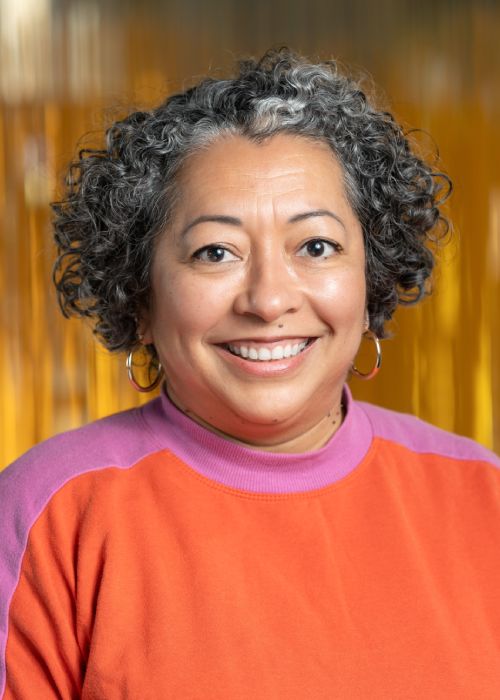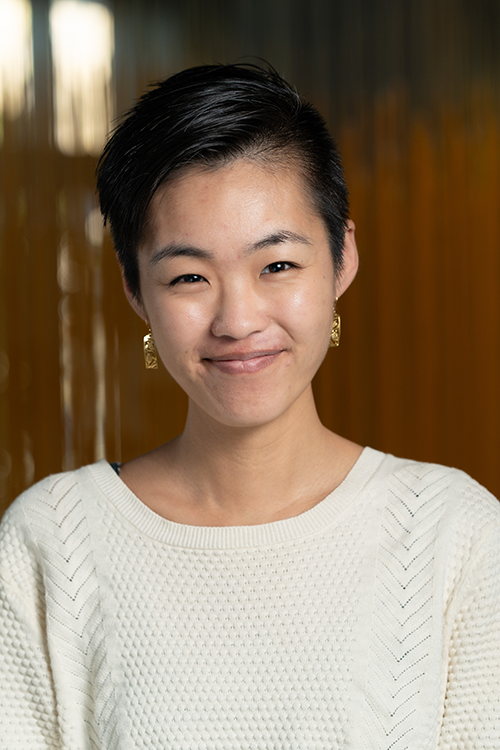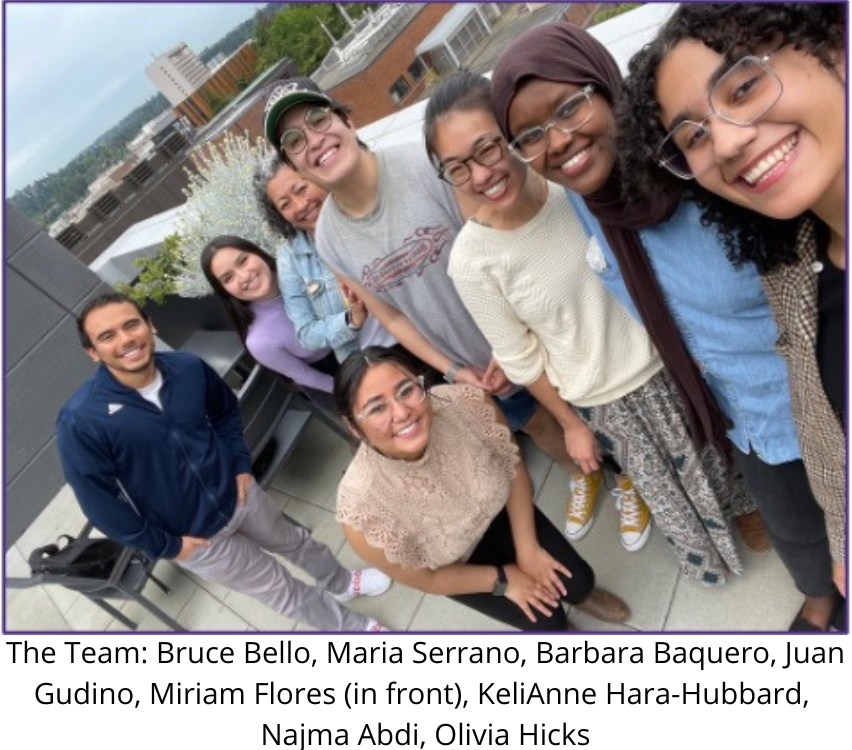January 12, 2024
Bridging Trust and Understanding: The Making of a Community-Centered COVID-19 Communications Toolkit

Navigating the landscape of COVID-19 vaccine hesitancy is a multifaceted challenge, intricately woven with historical mistrust, cultural beliefs, and systemic exclusion. To address this challenge, Barbara Baquero, Associate Professor, KeliAnne Hara-Hubbard, Project Coordinator, and their team partnered with the King County Health Department and Yakima Health District to create a COVID-19 Vaccine Communications Toolkit to provide communities with tailored, culturally-sensitive information to dispel myths and increase demand for and trust in the safety of COVID-19 vaccinations.
The idea of a COVID-19 Communications Toolkit emerged during community discussions. Community organizations voiced that they had an audience for COVID-19 information but lacked capacity to create content that kept up with the ever-changing landscape of COVID-19 guidelines. Baquero and Hara-Hubbard assembled their team and took a strategic approach to create community-specific content. They released content monthly for the year, starting each cycle with community conversations, including organizations such as the Somali Health Board, the Filipino Community Health Board, and Radio KDNA in Yakima County. This intentional approach ensured the toolkit’s content was impactful and catered to the specific needs of each community.

Each week a student researcher did a deep dive into the research to create translated material in various forms, including posters, social media posts, flyers, packets, and even scripts for radio shows. Though each community was unique, there were overlapping themes that communities asked the team to address. “The unifying messages and approaches of protecting family, protecting community and protecting others, were what we tried to focus on in our content,” said Hara-Hubbard.
Even with quality content, it was crucial that the team build trust with community organizations and members. To do this, Baquero and Hara-Hubbard used Community-Based Participatory Research (CBPR) principles to guide their relationship-building, relying on “proxy trust.” For example, Baquero partnered with a community researcher with years of experience working in one of the specific communities. Because of this the team was, “able to start with a more positive relationship that we could grow and strengthen even faster because we had been pre-vetted in a way,” said Hara-Hubbard. Most importantly, the team focused on capacity-building for community organizations. “All of these partners are folks who are already doing the work, have done the work, and are going to be doing the work long after we’re gone, so we tried to focus on building [community] capacity and letting them lead and guide the process,” said Hara-Hubbard.

To further build trust, Baquero and Hara-Hubbard hired a multi-cultural, multi-lingual team of both graduate and undergraduate students. Most of these student researchers had experience working with communities of color and some were members of the communities of focus in the project. “Understanding the community and the cultural community you’re working with is a skill and it’s a key component of being able to do meaningful work and strengthen partnerships,” said Hara-Hubbard. Their diverse team helped push and challenge Baquero and Hara-Hubbard to find new ways to share power and resources with communities and community organizations.
The result of this trust-building and community-centered project can best be summed up by a story that was shared with the team from the community organization The Custodian Project, who worked to support custodians during the pandemic. At the request of The Custodian Project, the team created COVID-19 information packets in seven different languages to be distributed with lunches for Custodian Appreciation Week. “One of the custodians said it was the first time they had ever seen something written in their language from the University of Washington. They spoke about how it made them feel seen and cared for,” said Hara-Hubbard.
Though funding for this project has ended, Baquero and Hara-Hubbard maintain their relationships with community partners and have started new projects that fit with partners’ new priorities. These relationships are more important now than ever as we head into the second-highest COVID wave since the beginning of the pandemic. As rates rise, communities will continue to need up-to-date, culturally tailored messages to ensure their safety. Said Hara-Hubbard, “COVID’s not going away, and we’ll need vaccines forever. False information about vaccines and particularly about COVID is very high. The topic is still relevant, but the work has evolved. It’s no longer a short-term project, but a long-term need. It’s here forever and we must treat it that way.”
This project was made possible by funding from the Centers for Disease Control and Prevention (CDC) through their Promotion Research Center (PRC) award mechanism totaling $500,000. Each PRC received this funding and became part of the CDC Prevent Research Center – Vaccine Confidence Network (PRC-VCN).